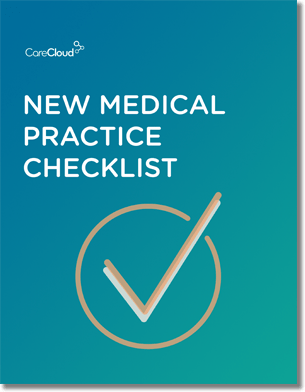There’s something contagious about entrepreneurship, and like epidemics, it’s often misunderstood or feared. But if other innovators can channel that negative energy into something positive, then you have the kind of radiant enthusiasm capable of igniting an entire industry.
Last week you read about the Pino Center, and read Dr. Haar and Dr. Borkowski’s insights on why the healthcare industry needs to be disrupted and what issues its entrepreneurs should look to address. This week, the duo discusses the importance of promoting healthcare technology within the community and whether South Florida can become a hub for inventive healthcare entrepreneurship – something we’ve pondered a few times ourselves.
How does Florida International University promote healthcare technology within the community?
FIU has supported the growth of healthcare technology in South Florida. FIU is one of the 5 workforce partners of the South Florida Health Information Technology Regional Extension Center (SFREC). The SFREC was established in 2010 with $8.5 million in federal funding. It is one of 32 regional extension centers awarded nationwide as part of the nearly $1 Billion Recovery Act Investment in advancing the use of Health Information Technology. The National Science Foundation’s (NSF) FIU-FAU-Dubna Industry/University Cooperative Research Center for Advanced Knowledge Enablement (CAKE) was established to develop long-term partnerships among industry, academe and government. The Center is supported primarily by industry center members, with NSF taking a supporting role in its development, evolution, and core funding. The Center’s mission is to conduct industry-relevant studies and deployments in the representation, management, storage, analysis, search and social aspects of large and complex data sets, with particular applications in healthcare as well as geospatial location-based data, disaster mitigation, transportation, and town planning.
How important are healthcare IT startups in boosting Miami’s economy?
Any type of startup is important to an area’s economy but with the big health IT push across the country (i.e., $27 billion in federal incentive payments for electronic health records), this activity is very important to Miami for continued growth. South Florida’s healthcare industry is extremely large, making it very big business for our region. In our tri-county area, the major insurance/managed care companies have a large presence; three of the country’s largest publicly-assisted health systems are located here, in addition to the for-profit hospital chains, and thousands of ambulatory clinics and physician offices. Just working in the area of electronic health records can be big business to Miami. In 2009, the federal government allocated incentive payments in the amount of $27 billion to health providers for widespread adoption of electronic health records (EHRs). Once a provider has a system in place and can demonstrate meaningful use of EHRs, financial incentives are available of up to $63,750 for the clinician. That equates to large incentive payments being redirected into South Florida.
In turn, are start-ups a good way to combat Miami’s ‘brain drain’? Are startups a good way to keep local talent local?
Startups are one way to help keep local talent, but it is far from a panacea. We often lose our best and our brightest to other locales with a well-established cluster or ecosystem in knowledge-based industries. However, things are changing. Flagship community organizations such as the Beacon Council – whose One Community, One Goal report offers a blueprint for addressing our competitive needs – and the Knight Foundation are in the lead for fostering a quality environment in which we can both prevent talent from leaving and attract additional new talent. We are upbeat as to the possibilities. But keep in mind – our challenge is a daunting one in the absence of large corporations or even large regional headquarters for technology-intensive firms.
How do you help new entrepreneurial ventures connect with willing investors?
We have a well-developed network of private equity, venture capital, and angel investors and facilitate contacts between new and established ventures and those investors. Our signature conference is the Americas Venture Capital Conference (AVCC), scheduled for December 13 and 14. It is a stellar event that is unique, high impact, and capitalizes on our special position as a nexus for commerce, trade, finance, and investment in the Americas. AVCC brings together both start-up and later-stage firms, venture capitalists, and other investors to meet, exchange ideas and discuss possibilities, which often results in deals being conducted on the spot. There are competitions for both start-up and later-stage firms, prizes, a pre-conference hackathon, a demo day, and a shark tank. The magic truly happens at the conference!
Do you think Miami is poised to become important healthcare IT hub in specific, and could it more broadly grow to become a tech start-up hub capable of competing with Silicon Valley, San Francisco, Seattle, New York City and Boston?
Miami-Dade County is a hub for Latin America and the Caribbean because of geography. The county’s great location and weather allow easy travel, which has contributed to its growth. It is now the most populous county in Florida and ranked eighth in the country. Its population size provides employers with the necessary workforce. In 2010, Miami was ranked 7th in the US and 33rd globally within the following sectors: finance, commerce, culture, entertainment, fashion, and education. Soon, healthcare will join these sectors with 28 hospitals and more than 32,000 licensed healthcare professionals. With the state’s largest concentration of medical facilities, Miami is poised to become important healthcare IT hub. It’s no wonder IBM held its May 2012 SmartCamp KickStart in Miami at Florida International University College of Business Complex, where healthcare IT startups from around the world could participate.
Click here in case you missed the first part of Dr. Borkowski and Dr. Haar’s Q&A and follow the Pino Center on Twitter @FIUEntrepreneur!

Do you know what you need when setting up a new medical practice?


